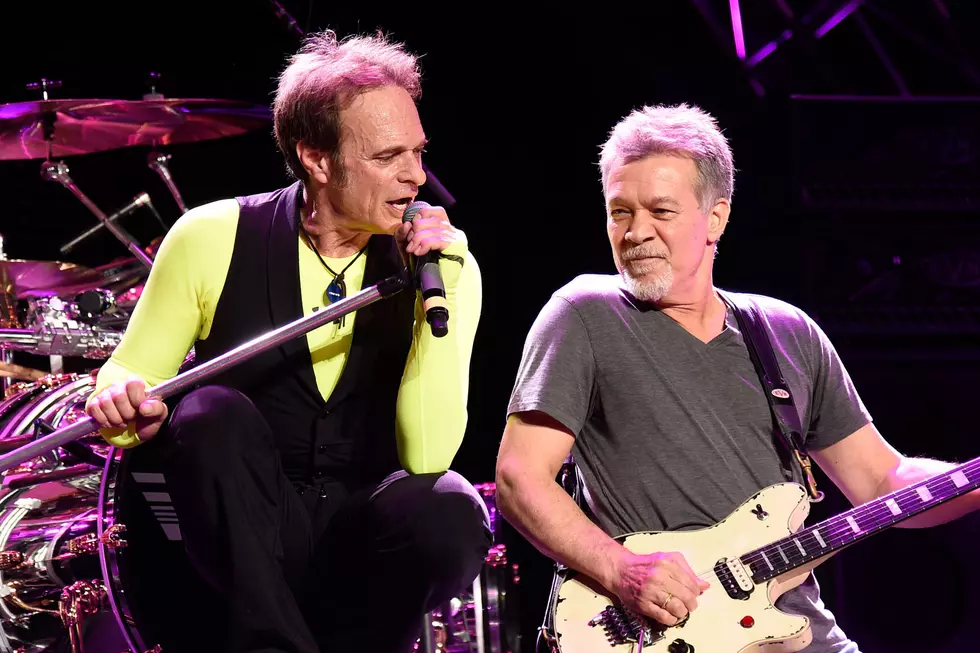
Four Ways Robert Plant Was Better Off Without Led Zeppelin
Did Led Zeppelin hold Robert Plant back?
The question seems insane. But it’s not rhetorical.
Led Zeppelin's importance only becomes more clear with deeper listens. But for all of their musical diversity, Plant went to still-undiscovered places once he left Jimmy Page and John Paul Jones behind.
Let’s be crystal clear about this: Input from Page and Jones (and especially John Bonham, had he lived) could have improved dozens of tracks from Plant’s solo catalog. Half of his 1982 solo debut, Pictures at Eleven, would be better if done by Zeppelin (see “Burning Down One Side,” “Like I’ve Never Been Gone,” “Slow Dancer”). Conversely, 1991's Manic Nirvana finds Plant trying his damnedest to make Led Zeppelin V on his own.
But a bigger chunk of Plant’s output benefits from his unique aesthetic and his collaborations with artists far afield from the Led Zeppelin legacy: drummer Phil Collins, alt-rock engineer Tim Palmer, bluegrass icon Alison Krauss, folk queen Patty Griffin, electronica and trip-hop artist John Baggott, world beat guitar ace Justin Adams and legendary Americana producers Buddy Miller and T Bone Burnett.
Here’s a look at four artistic turns that would have been hampered if Plant had attempted them with Page, Jones and Bonham
The Early Hits
Some argue his first singles can’t even compete with Coda. The thing is, they don’t aim to.
From Peter Gabriel to Sting to Eric Clapton, most classic rock heroes go from adventurous music to clean pop. Sometimes that leads to masterpieces (“Sledgehammer”), more often it results in utter pap (“Desert Rose,” “Change the World”). But Plant inverted this approach: After inventing, perfecting and reinventing heavy rock for a decade with Led Zeppelin, Plant started with pop and then walked into jungles of noise and chaos. But Plant’s pop came with caveats.
With Page no longer producing everything, Plant took control of his art. Like so many of his contemporaries, Plant fell for signature ’80s approaches from new wave synths, processed drums, loops, samples and dance grooves bumping up against world beat rhythms. But in Plant’s hands “pop” always came out strange, almost avant garde (listen to the messy weirdness of “Little by Little,” how it keeps building to nothing and yet is somehow satisfying). The singer’s biggest hits of the decade, from “Big Log” to “In the Mood” to "Tall Cool One," all found new ways to nod to his rock past, indulge in the Top 40 of the day and still move toward an increasingly experimental future. The appealing-and-unsettling balance felt nicely distant from "Rock and Roll.”
Listen to "Little by Little"
The Ballads
Led Zeppelin didn’t do many pure ballads. Power ballads? Absolutely! The band loved starting sweet and simple and accelerating into a triumphant guitar solo or rumbling instrumental break. And the guys did it well, from “Tangerine” to “Down by the Seaside” to “Stairway to Heaven.”
But without his band, Plant can sit comfortably in a lazy, dreamy, subtle or tender ballad. While a real dividing line for many fans, his album with Krauss, 2007’s Raising Sand, shows off the singer’s ability to be content at the pace of a cowboy walking his horse into a painted sunset (see “Killing the Blues”). When, by choice, you don’t have any virtuosos in your band, you can let a slight keyboard vamp, sparse percussion and strings float a tune like “A Way With Words” on 2017’s Carry Fire. Or you can revel in a mellow hippie vibe like he does in “Rainbow” from 2014’s lullaby and ... the Ceaseless Roar.
Listen to "Killing the Blues"
Roots Rock
His work with Krauss immersed Plant in the modern Americana scene. Over the next decade and a half, this rootsy, old-school rock ‘n’ roll vibe was present on every Plant LP but nowhere does it shake and shine like it does on 2010’s Band of Joy, which features a whole crew of Nashville cats. Those who loved Krauss and Plant's rave-up “Gone Gone Gone (Done Moved On),” got half a dozen similar romps on Band of Joy. Starting the album with Los Lobos’ “Angel Dance” made a clear statement: Gibson Les Pauls played with bows were out, and mandolins and shuffling drum beats were in. But while the album runs through a few retro rock nuggets such as “You Can’t Buy My Love” and gentleman country ballads like “Harm’s Swift Way,” it also looks toward sonics that really set Plant’s solo output apart from his work with Zeppelin.
The closing track on Band of Joy, “Even This Shall Pass Away,” begins with an electronic wash, a sort of storm of distortion, a pulse of white noise. Much of the record has more in common with the Avett Brothers than Zeppelin, but its sound -- as well as on the minor masterpiece “Monkey” -- lays out Plant's genius as a producer.
Listen to "Angel Dance"
Space-Age Productions
Page produced Led Zeppelin perfectly, and he gave the Firm an expert touch. But Page hasn’t evolved much — there’s a reason he spent his time post-Zeppelin mining nostalgia or working with acts like Paul Rodgers, David Coverdale and the Black Crowes. Meanwhile, Plant become a radical.
As a writer, arranger and producer, Plant has formed some grand unified theory of everything. Lately, he’s put his current band, the Sensational Space Shifters, to work in proving his theory. He takes a traditional tune like lullaby and ... the Ceaseless Roar's “Little Maggie” and adds a breakdown of new wave synthesizers and barn dance clapping. An album later, on Carry Fire, he turns the rockabilly warhorse “Bluebirds Over the Mountain” (done gleefully by both Ritchie Valens and the Beach Boys) into something akin to an outtake from Radiohead’s Kid A remixed for both sunset at a Moroccan street fair and sunrise at an Ibiza beach party.
Plant wants to take Willie Dixon and run it through EDM, sub-Saharan African folk and acid rock. He wants centuries-old tribal music and urban British trip-hop to lay together and pound out the same primal heartbeat. Unlike so much of Led Zeppelin — a band that, once again, is undeniably glorious — Plant won’t do anything that doesn’t stare unblinking at the deep past, present and distant future.
Listen to "Little Maggie"
Robert Plant Solo Albums Ranked
More From Classic Rock Q107










